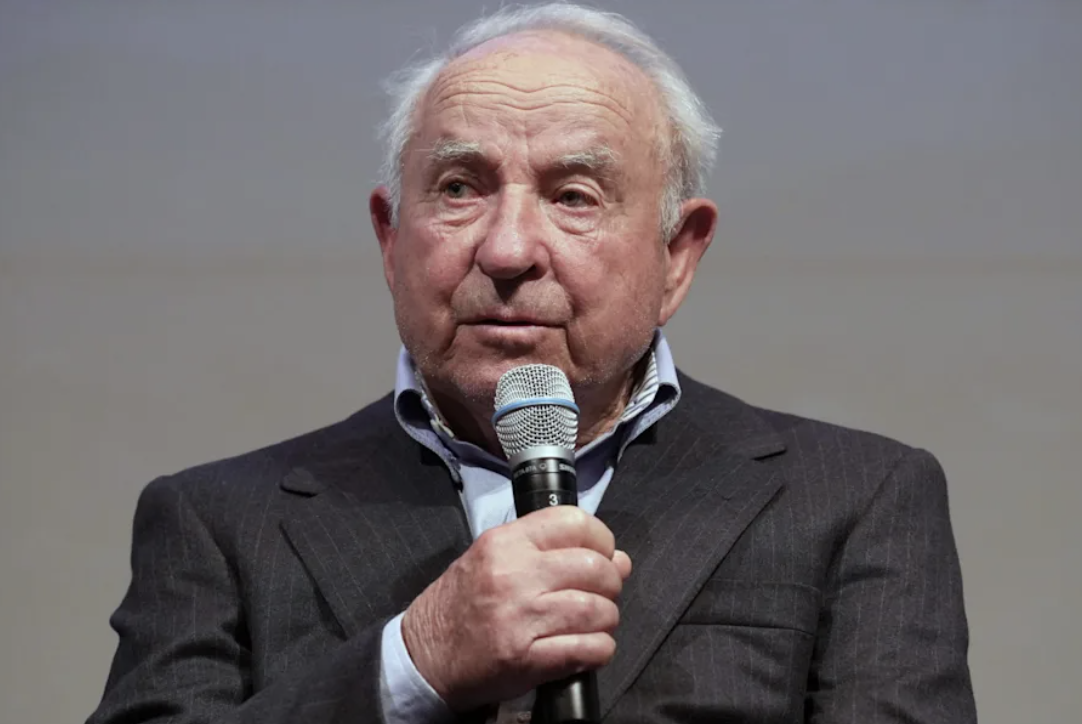While many founders aspire to join the billionaire's club alongside Warren Buffett, Bill Gates, and Jeff Bezos, Yvon Chouinard, founder of the American outdoor clothing and gear company Patagonia, considered it a burden.
In 2017, Forbes magazine listed Chouinard as a billionaire with a net worth of 1.2 billion USD. He didn't view this as an achievement, but rather a reflection of the growing wealth gap and inequality in society. Chouinard requested his name be removed from the list.
He's not alone in his concern about wealth disparity. Over 25% of Americans across the political spectrum believe it's a negative thing for individuals to possess over a billion USD, according to the Pew Research Center.
 |
Billionaire Yvon Chouinard, founder of Patagonia. Photo: Fortune |
Billionaire Yvon Chouinard, founder of Patagonia. Photo: Fortune
Born on 9/11/1938 in Lewiston, Maine to a poor French-Canadian family, Chouinard didn't speak English as a child and was often teased for his feminine-sounding name. He found solace in rock climbing.
In 1957, finding European climbing equipment both expensive and substandard, he bought a used coal forge and learned to make his own gear in his backyard. His first creation, a steel piton fashioned from a discarded scythe blade, proved successful on the famed cliffs of Yosemite with his friends, and quickly gained popularity among the climbing community.
He borrowed 1,000 USD from his parents to begin mass production. In 1965, Chouinard founded Chouinard Equipment, specializing in climbing gear.
Since his youth, Chouinard has been known for his "dirtbag" lifestyle. He subsisted on oatmeal, soup made from potatoes and near-expired food, even canned pet food.
Chouinard had no fixed address, sleeping in his old truck, at free campsites, or beneath boulders in Yosemite, Grand Tetons, and the Alps. He spent over six months each year traveling across North America and Europe.
Fellow climbers in Yosemite were accustomed to seeing him in his makeshift tent, using a worn sleeping bag and patched clothing. "Climbing and living simply was all I wanted," he said.
Chouinard pioneered "clean climbing," advocating for removable aluminum equipment to minimize damage to rock faces. In his first catalog in 1972, he introduced the philosophy of "putting nature first," which later became the foundation for Patagonia's shift to organic materials and a pledge to donate 1% of sales to environmental organizations.
Patagonia experienced substantial growth after the 2008-2009 financial crisis, with sales increasing by 25% and profits tripling between 2008 and 2014. By 2017, the company's revenue reached approximately one billion USD, and its estimated value reached three billion USD.
In 2022, Chouinard and his family transferred ownership of Patagonia to a trust and a non-profit organization, guaranteeing 100 million USD in annual profits to fund climate change initiatives and protect undeveloped land. "We’re going to give away the maximum amount of money to people who are actively working on saving this planet," he stated.
Many billionaires worldwide have voluntarily donated most of their wealth to society. In 2024, the number of new billionaires tripled compared to the previous year, with an average of four new billionaires emerging each week, according to Oxfam.
In the US alone, billionaire wealth increased by 1,400 billion USD. Larry Ellison's net worth grew by 175 billion USD, according to the Bloomberg Billionaire Index. He briefly surpassed Elon Musk as the world's richest person before the Tesla and SpaceX CEO reclaimed the top spot with 440 billion USD.
Ngoc Ngan (From Fortune)












